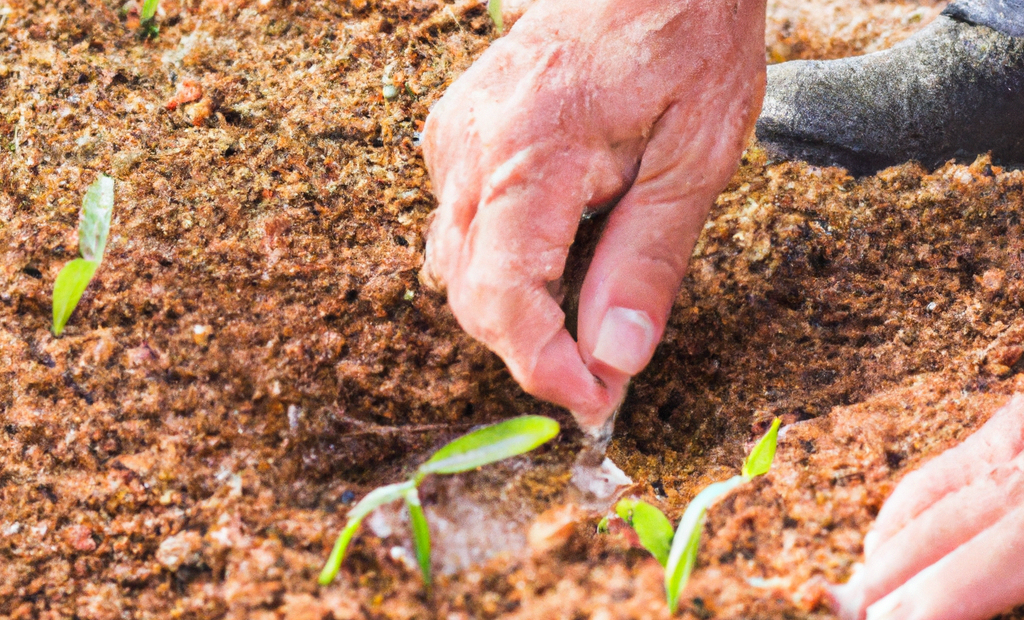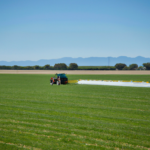The section addresses the meaning of fertilizers and biofertilizers in organic agriculture, highlighting their role in the nutrition and strengthening of crops. Biofertilizers, made from organic materials, improve the structure of the soil and its water retention capacity. Pruning also plays a crucial role, removing diseased parts of plants and improving nutrient uptake and sunlight exposure. Biofertilizers promote sustainable agriculture and can be an alternative to conventional chemical fertilizers. The section concludes by advising farmers to be selective in the agricultural products they use.
The health and productivity of crops depend largely on the agricultural practices implemented. Among these, pruning occupies a prominent place, as it helps control the size of the plants, promotes their growth and improves the quality of the harvest. However, pruning must go hand in hand with other strategies, such as proper plant nutrition, to guarantee its effectiveness. In this sense, fertilizers and agricultural products play a crucial role. However, in the current context of searching for sustainable practices, organic farming and biofertilizers have gained relevance. In this article, we will explore how these strategies and products can influence pruning practices and, consequently, crop health. We will analyze the role of traditional fertilizers, the impact of biofertilizers, the benefits of organic farming and the importance of agricultural products in this context.
- 1. "The Role of Fertilizers in Pruning and Health of Crops"
- 2. "Organic Farming: Improving Crop Health through Proper Pruning Practices"
- 3. "Impact of Biofertilizers on Pruning and Crop Health"
- 4. "Agricultural Products: Their Importance in Pruning and Health of Crops"
1. "The Role of Fertilizers in Pruning and Health of Crops"
In the context of organic farming, fertilizers play a crucial role not only in crop nutrition, but also in pruning practice and overall plant health. By providing essential nutrients that plants require for growth, fertilizers help strengthen plants and prepare them for the pruning process. This additional sturdiness can reduce the chance of plants being damaged during pruning and can help speed their recovery afterwards. Biofertilizers, which are agricultural products made from organic materials, can be especially useful in this context. These products can not only provide crops with the nutrients they need, but can also improve soil structure and its ability to retain water, which can further benefit plants during the pruning process.
2. "Organic Farming: Improving Crop Health through Proper Pruning Practices"
Organic farming, which focuses on using natural and sustainable techniques to grow plants, has proven to be an effective way to improve crop health. Among these techniques are proper pruning practices, which can have a significant impact on a plant's resistance to disease and its ability to produce healthy, nutritious food. By removing diseased or damaged parts of plants, pruning can help prevent the spread of disease and improve plants' access to sunlight and nutrients. Additionally, pruning can be an alternative to chemical fertilizers, as it can help improve soil health and nutrient availability for plants. This is one reason why many organic farmers choose to use biofertilizers and other organic farming products, which can complement pruning practices and contribute to the overall health of crops.
3. "Impact of Biofertilizers on Pruning and Crop Health"
The use of biofertilizers in organic farming has proven to have a significant impact on the pruning and health of crops. These agricultural products, composed of microorganisms that provide essential nutrients, contribute to improving soil fertility and, therefore, the healthy development of plants. By strengthening crop growth, biofertilizers can facilitate pruning practices, reducing the presence of diseased or dead branches that can affect the overall health of the plant. In addition, the use of these organic fertilizers promotes more sustainable agriculture, by avoiding soil and water pollution that can arise from conventional chemical fertilizers. In short, biofertilizers can be a valuable ally to optimize pruning practices and improve crop health and performance.
4. "Agricultural Products: Their Importance in Pruning and Health of Crops"
Agricultural products such as fertilizers and biofertilizers play a crucial role in pruning and overall crop health. These carefully formulated products nourish plants with the essential nutrients they need to grow and thrive. In organic farming, biofertilizers are especially important, as they are a safer and more sustainable option compared to chemical fertilizers. These agricultural products often contain beneficial bacteria that improve soil health and, consequently, plant health. When combined with proper pruning practices, these products can improve crop productivity, disease resistance, and overall quality. Therefore, it is essential that farmers carefully consider which agricultural products they use in their operations.
Pruning practices play an essential role in crop health and productivity. The precise and timely application of fertilizers, whether conventional or biofertilizers, can help maximize the benefits of pruning, promoting the recovery and growth of plants. Organic farming, for its part, has shown that it is possible to improve crop health through proper pruning practices, while respecting the environment. However, it is important to remember that agricultural products, such as pruning tools and equipment, also have a significant influence on this process. Ensuring its correct use and maintenance can make the difference between a healthy and prosperous crop and one that is in difficulty. Ultimately, it is the combination of all these factors - a balanced and sustainable approach to fertilization, the adoption of ecological practices, the use of biofertilizers where appropriate, and the use of quality agricultural products - that can ensure the health and success of our crops.


